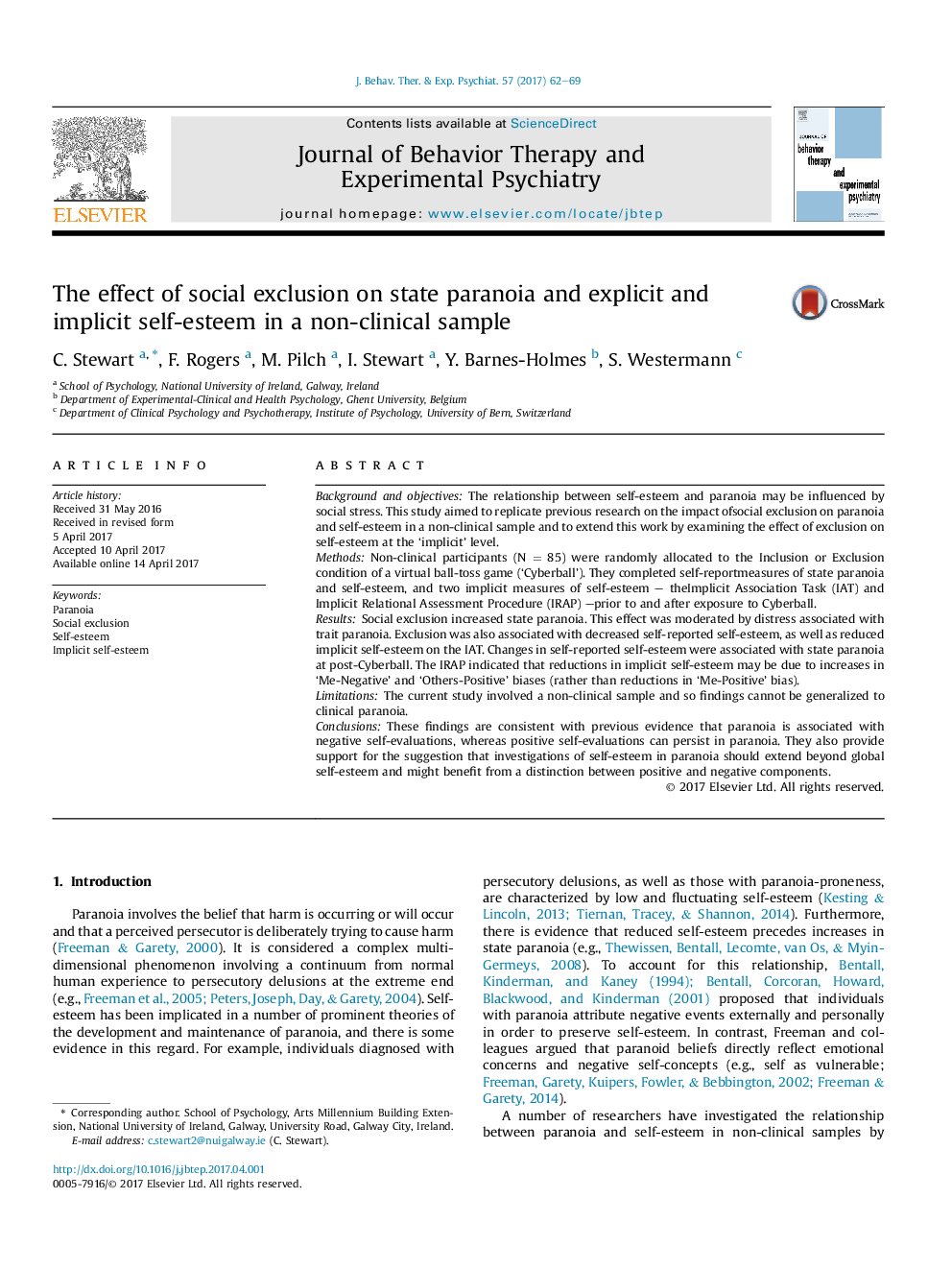| کد مقاله | کد نشریه | سال انتشار | مقاله انگلیسی | نسخه تمام متن |
|---|---|---|---|---|
| 5039008 | 1473059 | 2017 | 8 صفحه PDF | دانلود رایگان |
- Social exclusion increased state paranoia in a non-clinical sample.
- Exclusion associated with reduced self-reported and implicit self-esteem on the IAT.
- Exclusion associated with increased 'Me-Negative' & 'Others-Positive' biases on IRAP.
- Investigations of self-esteem in paranoia should extend beyond global self-esteem.
Background and objectivesThe relationship between self-esteem and paranoia may be influenced by social stress. This study aimed to replicate previous research on the impact ofsocial exclusion on paranoia and self-esteem in a non-clinical sample and to extend this work by examining the effect of exclusion on self-esteem at the 'implicit' level.MethodsNon-clinical participants (NÂ =Â 85) were randomly allocated to the Inclusion or Exclusion condition of a virtual ball-toss game ('Cyberball'). They completed self-reportmeasures of state paranoia and self-esteem, and two implicit measures of self-esteem - theImplicit Association Task (IAT) and Implicit Relational Assessment Procedure (IRAP) -prior to and after exposure to Cyberball.ResultsSocial exclusion increased state paranoia. This effect was moderated by distress associated with trait paranoia. Exclusion was also associated with decreased self-reported self-esteem, as well as reduced implicit self-esteem on the IAT. Changes in self-reported self-esteem were associated with state paranoia at post-Cyberball. The IRAP indicated that reductions in implicit self-esteem may be due to increases in 'Me-Negative' and 'Others-Positive' biases (rather than reductions in 'Me-Positive' bias).LimitationsThe current study involved a non-clinical sample and so findings cannot be generalized to clinical paranoia.ConclusionsThese findings are consistent with previous evidence that paranoia is associated with negative self-evaluations, whereas positive self-evaluations can persist in paranoia. They also provide support for the suggestion that investigations of self-esteem in paranoia should extend beyond global self-esteem and might benefit from a distinction between positive and negative components.
Journal: Journal of Behavior Therapy and Experimental Psychiatry - Volume 57, December 2017, Pages 62-69
